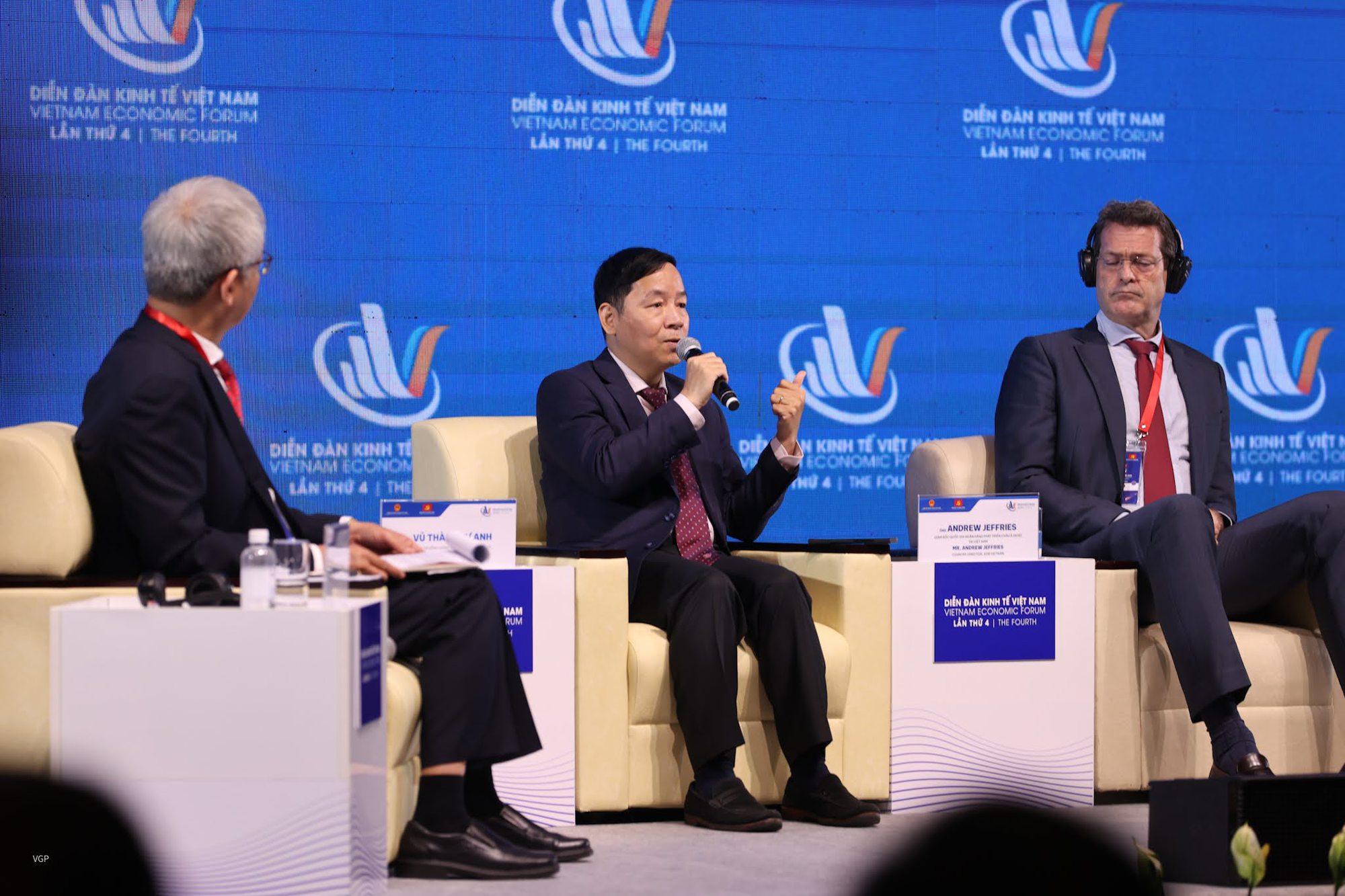
At the high-level dialogue of the 4th Vietnam Economic Forum themed “Building up a resilient, independent and deeply integrated economy in the new landscape” that took place in Ho Chi Minh City on June 5, Dr. Vu Thanh Tu Anh, Director of Fulbright School of Public Policy and Management (FSPPM) delivered his remarks on the challenges for Vietnam’s economy in 2022 due to the influence of the global economic downturn.
The Vietnam Economic Forum (VEF) is an annual event that has been organized by the Central Economic Committee since 2027. This year, along with a series of workshops, VEF hosts a high-level dialogue with the participation of Prime Minister Pham Minh Chinh, senior officials, economic experts from Asian Development Bank (ADB), the International Monetary Fund (IMF) and local institutions.

Dr. Vu Thanh Tu Anh delivers his remarks at the 4th Vietnam Economic Forum. Photo: Nhat Bac/VGP
From the perspectives of a researcher, Dr. Tu Anh made his comments on the challenges for Vietnam’s economy, fueled by global challenges such as the Russia-Ukraine war making indirect impacts on energy and food prices and causing supply chain disruptions.
On the other hand, Vietnam should still pay attention to inflation rate, which has gone up to 8 percent in developed countries, despite the fact that it has not shown warning signs in Vietnam.
“There are three reasons why Vietnam’s inflation rate is not high. First, given Vietnam’s trade openness, the country needs some time to “import” inflation. Second, Vietnam’s economic growth rate is not high, so is the inflation rate. Third, Vietnam is not affected by the surging prices of food as much as other countries in the world since Vietnam is a food exporter,” Dr. Tu Anh explained.
He mentioned economic downturn as one of the major challenges for Vietnam’s economy due to the reliance on the global economy; accordingly, the global economic downturn may badly affect Vietnam’s economy.
Dr. Tu Anh listed three factors that are putting huge pressure on Vietnam’s economy: inflation, financial and fiscal problems, especially bad debts, and the threats to growth prospects caused by the pandemic, the war, the supply chain disruptions and monetary contractions.
As a researcher, he also gave positive reviews on Vietnam’s macroeconomic management in the past two years.
“Vietnam is still stable in a turbulent world. To put it another way, Vietnam is a shelter in the time of storm… For the first time in 20 years, we’ve managed to safeguard macroeconomic stability despite external shocks,” he commented.
👉 Click here to read more about the high-level dialogue on the government portal: https://bit.ly/3NrXajK








